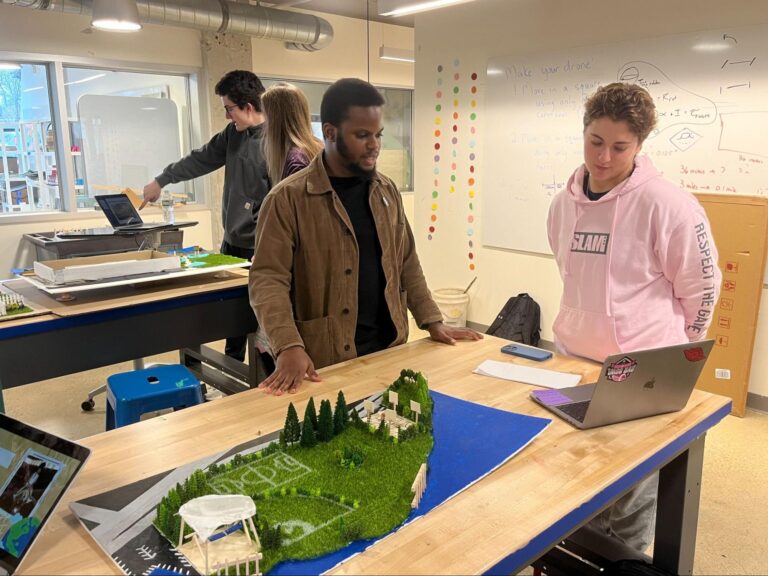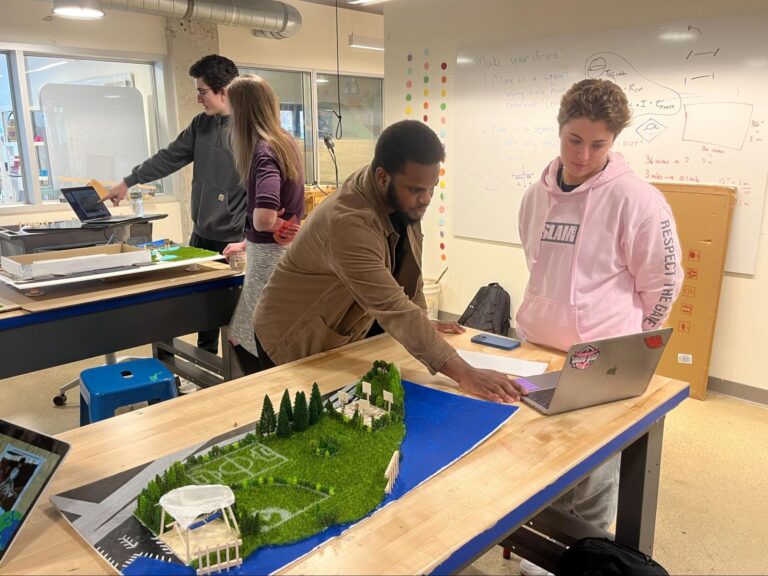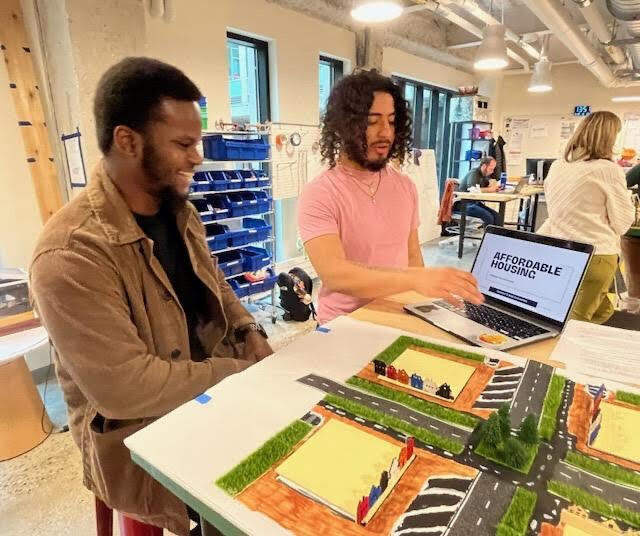Solving community-wide issues we face as architects and designers, including affordable housing, transportation, food security, accessible playgrounds, climate change, and environmental & social justice, starts with education. By fostering younger students’ interest and knowledge of the field, we’re planting the seed for the next generation of architects and designers, who hopefully will have the keys to improving our built environments. Studio Luz Designer Joshua Ssebuwufu visited Beaver Country Day School in Chestnut Hill to work with students in an Urbanism + the Built Environment class led by faculty member Yolanda Wilcox González — we talked with him about the importance of educating younger students about design, what inspired him about the visit, and why its essential to always continue learning.
Tell us about your recent visit to Beaver Country Day School. What did you work on with the students?
I was invited to the school to visit students in Yolanda Wilcox González’s Urbanism + the Built Environment class, and participate in their final review. Earlier in the year, the class visited Savannah, GA and studied some of the repercussions of redlining. Their final projects revolved around finding solutions to significant real world problems like the ones they learned about on their trip. I was able to review the students’ work, give them feedback, and try to help them understand some of the potential outcomes of their projects

What were some of the issues that you saw students addressing in their work?
Many of the students were trying to look at approaches that could provide solutions to significant problems like the lack of affordable housing and environmental crises , as well as reclaiming a lot of the space that was taken away from communities due to redlining.
How did Studio Luz get connected to the school?
Studio Luz does a good job of embedding ourselves within the community. Through different initiatives, we are able to make individual person to person connections, as our Principal and Co-Founder, Hansy, made with Yolanda, the teacher for this class.
What was most inspiring to you about the visit?
Beaver Country Day School is a private school, and it would be fair to assume that the students there are in large part insulated from various social, economic and political problems that exist in our social realm, given the privilege that they have going to such a prestigious institution. However, that was far from the truth: the issues that they were addressing in their work are pressing and affect many people outside their communities.
Having students that young get involved with solving pressing issues of today is really inspiring because they offered some fresh new outlooks on some of these problems. Observing the way these students approached their projects makes you realize that even though we have come up against many of these issues, like affordable housing, over and over again, some of us have lost hope that we can overcome them. They have real optimism and hope that they can come up with a solution. The students really believed in their solutions, which in my opinion, is all you need — if you believe it and you’re passionate about it, then you’re ready to fight for it.


Why do you think it’s important for design principles and foundational ideas of architecture to be taught to students in K-12?
These topics are important to be taught to students, not just because they prepare you to get into the profession, but because learning about these things help students care. As young people growing up, we’re curious — we’re trying to find out more about the world and understand why things are the way they are. Encouraging awareness and providing guidance and education helps them have a different outlook to society and helps them to not only actually care about these issues, but to have the confidence to ideate solutions, which is what we need. We don’t want to continue to have the same problems, so if we can have young people step in and provide a fresh outlook, we can find solutions.
At the same time as you are offering your insight and guidance to younger students, you’re also pursuing a postgraduate degree and furthering your own education. Why is it important for people working in your field to always continue to learn?
I think of myself as a forever student, because you can never have enough knowledge. Even though we have the same issues and problems and challenges throughout society, they always come in different forms and you need to be up to the task to adapt and tackle these issues in a different way. That requires us to always be open-minded so that whenever we’re faced with these challenges, we’re able to not only recognize them, but also adapt quickly to provide solutions.
